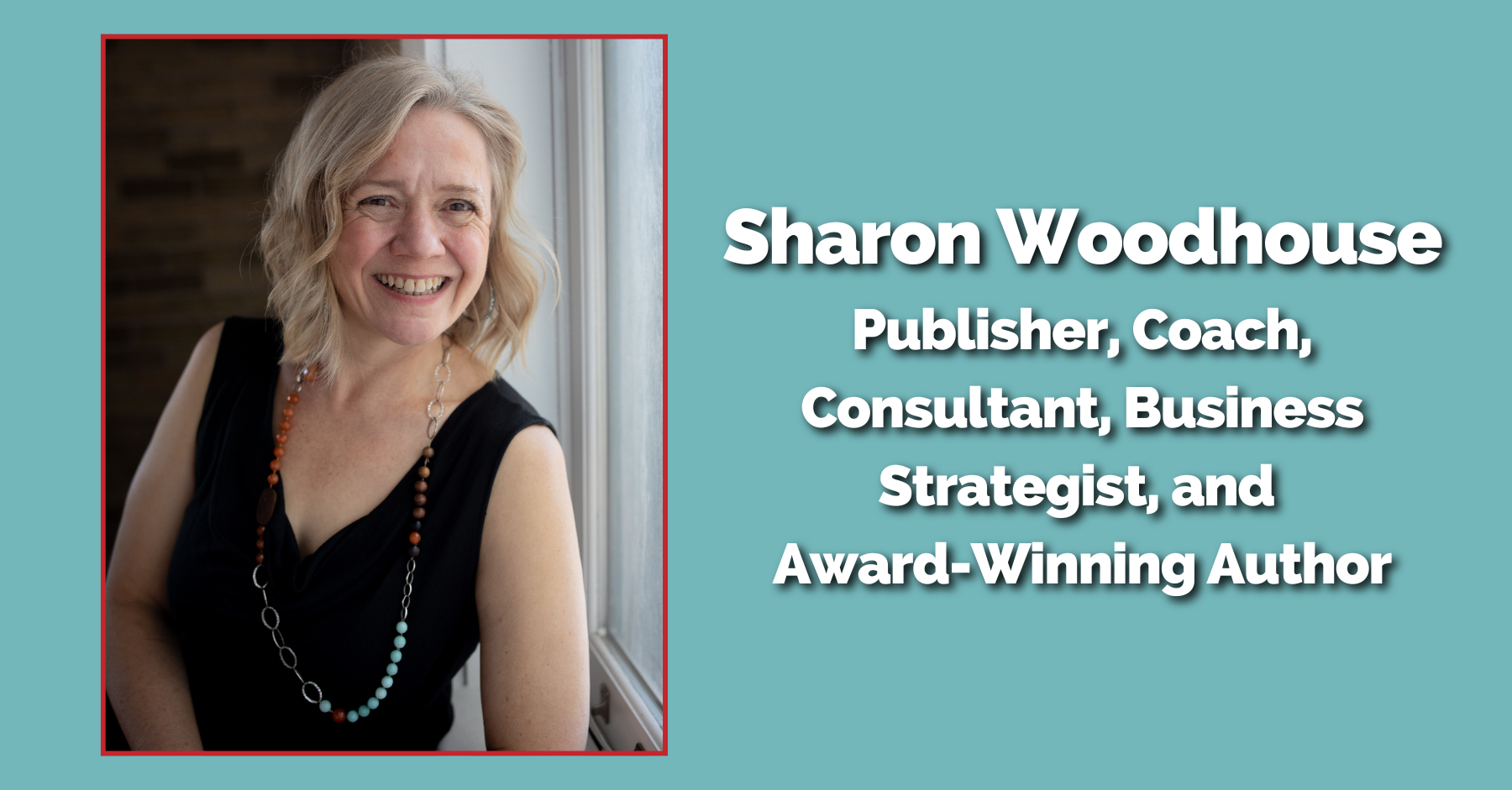Click here to listen on your device and subscribe!
Welcome to Season 2 of The Book Marketing Action Podcast with Becky Robinson, where we give you information that you can immediately implement to increase your influence and market your books more successfully. We are in the month of February, which is the month of all topics related to authors and publishing choices. In this episode, we are joined by our friend and client, Michael Dowling, award-winning ghostwriter, author, and editor.
About Michael Dowling
Becky: I’m going to let you give our audience a little bit of information about your background as we get started.
Michael: Becky, great to be here with you. Yes, I’m a ghostwriter. I work with business professionals, thought leaders, often they’re consultants or CEOs of companies, people like that, who want to write a book. Usually, it’s about their area of expertise. I want to create books that are in their voice and accomplish their goals. So my job is to be a servant to them and to save them time. I’m very conscious of their time and I work with them in an interactive, collaborative way. It’s a great job because I get to work with some top-notch people and it’s a rather intimate process when you work for several months with someone on a book. It’s a really fun job, and you develop some nice friends in the process.
Becky: I bet you do, Michael. So how many books would you estimate that you have ghostwritten during your career?
Michael: Probably a couple of dozen over the life of my career. I’ve been doing it since about 2000 so that’s about a book a year probably.
What motivates someone to hire a ghostwriter?
Becky: Michael, talk to me a little bit about what motivates someone to hire a ghostwriter?
Michael: Well, some people want to write a book about their family and family history. But by far, the largest number of my clients want to write a book to increase their business success. A book can open doors to new opportunities that just escalate your career and your organization. If an organization is involved to another level, people look at you with increased respect. As an author, a lot of people talk about writing a book, but very few do it. So somebody who becomes an author is really highly respected in our culture. First of all, it can communicate your message in a very effective way. You can put case examples in the book, illustrations, your own experiences, and it helps people understand what the content of the book is about. It helps communicate your content and your principles and it also tells people that you’ve been there and done that. So it shows that you have the experience, and it gives you a lot of credibility. Then a book will open doors for you. Organizations will want authors to come and speak if you have a book, so you’re much more likely to get speaking engagements. And if you already speak a lot, you can probably increase your speaking fees if you charge fees. A book is just a way of promoting your business, and your expertise has set you up as an expert in your field. People recognize that, so it’s very effective.
Becky: Michael, those are a lot of compelling reasons that someone would want to write a book. But tell me a little bit about the reason behind people choosing to hire a ghostwriter rather than writing the book themselves?
Michael: Well, it’s very difficult to write a book on your own. First of all, you have to be amazingly disciplined to do it, because other things take priority – your normal business, and most of the people that I work with are extremely busy, and it’s just hard to do. The second thing is when you’re working with someone else, you have that accountability. So you know that you’ve got a meeting or a phone call scheduled and you’ll do your homework for it. An editor or a ghostwriter, like I am, can work with you and help pull things out. If you’re writing a book, you’re very close to your subject. You may not see it objectively and someone who doesn’t know as much about it can ask questions and cause you to think about things in a different way that’s understandable to your target audience. So that’s why it’s so helpful to work with a ghostwriter like me, and I also save a lot of time for the person.
How does the process of ghostwriting work?
Becky: That’s helpful. Thank you. So talk to me a little bit about how the process of ghostwriting works.
Michael: The first thing I do when I meet with someone is talk about why they want to write a book. When you know the potential rewards are there, then you will have the perseverance, determination, and dedication to do the job. You also want to know that at the end, you’ll get a good return on investment. That’s the first thing, know why you want to write a book for your own benefit.
The second thing is to understand what you have to give to your readers. You need to be able to offer something of value to them. And then the process goes over a period of months, I tell people on average 9 to 10 months. So you start by doing those things, you get your focus right, in terms of why you’re writing it, and why people would want to read your book.
Then we start by writing the preface, which talks about those things. The preface is the author’s way of selling the reader, what the book is about, why the person should read it, why you, as the author, are qualified to write it, what they can expect to get out of it, and so on. While we’re doing that, we’ll flesh out a rough table of contents. So you’ve got a roadmap for the book. Then we just go through the book, chapter by chapter, usually on phone calls. There’ll be a phone call, say, every couple of weeks, and I will record what my client says, I’ll work from that draft from the transcript and send something back in the next phone call, we’ll go over that, make great corrections, and so on. If there are places where it’s not the way my client would word, I’ll make sure to re-word it in his or her voice. But that’s the process. You work through it for that period of time until the book is done.
Becky: Wow, it’s an intense process. But it sounds like you have specific milestones along the way to help you stay on track.
Michael: Yeah, you can tell how you’re doing along the way and sometimes a client needs to take a month off to go somewhere, do something, and that’s fine.
How do your clients publish their books?
Becky: Michael, you mentioned that most of the time your clients are business people who are looking to use their book as a door opener to additional business opportunities. So I’m curious what type of publishing choices your clients make with their books? How are most of your clients publishing their books, once they’re complete?
Michael: One or two of my clients have traditionally published a book and gone to a major publisher, but most of my clients self-publish their books because they have a niche market. Their book is not something that a major publisher would make a lot of money selling to the general public, so self-publishing is the way to go. I helped them set up their own Publishing company, which is a simple thing to do. I walk them all the way through that process because it’s a turnkey process to get books in their hands and an ebook. And the way I set it up is that my clients have a direct relationship with the printer. So after the book is published, they can buy additional books at the cost of the printer, which is usually very low. And if the client is selling books on his website or in the back of the room when giving a talk, you get the difference between whatever the list price of the book is and that printing cost. That’s very attractive, and you can easily give them away at an economical price. So, in a sense, it’s a very elaborate calling card that tells people what you do and stays with people and sells your message, for a very nominal cost.
How much does the entire process cost?
Becky: Well, let’s talk for a moment about cost, Michael. So you mentioned that it takes about six to nine months for you to partner with an author from that first call until the book is complete. About how long does it take from the time the book is complete until you have a published book in your hands? And about how much might an author expect to spend on that entire process, from hiring a ghostwriter to having that finished book in their hands?
Michael: Well, as I said earlier, the time from beginning to end is about 9 or 10 months, it can go faster and it can take longer depending on the needs of the author. The production part of the process, by the way, if you’re self-publishing, that’s the cost of the cover design, and then interior layout, and the printing of a few hundred copies. I tell people to budget $10,000 for that whole process, and that includes getting some copies of your book. So it’s relatively inexpensive. The biggest chunk, of course, is the writing, and I think it’s very important to work with a ghostwriter or an editor and not try to do it yourself for the reasons I said earlier. Usually the cost is billed. I bill on a monthly basis as the project proceeds, and that can range anywhere from $3,500 to $5,500 a month, depending on the complexity of the book, how many times we talk, and so on. So the total cost for doing a book can range anywhere from $35,000 to $60,000. Including the production costs, I would say about $40,000 to $65,000.
Do you have any final advice or cautions?
Becky: Thanks for sharing those details, Michael. I’m sure that that is really helpful to authors who are considering writing a book and publishing a book as an investment in their businesses. I’m wondering, if you have any final advice or cautions for people who are considering this journey to becoming a published author?
Michael:
- If a book is strongly on your mind, don’t procrastinate. Talk to an editor or ghostwriter, like me, but get going and explore.
- The second thing is, before you get going very far, know why you want to write a book. You can discuss that with your editor or ghostwriter and refine it, but you need to know that.
- Then thirdly, discuss and clarify what your message is, and make sure it’s a valuable message. And again, I think you do that in conjunction with your ghostwriter.
So I think the first part would be to get going and talk to somebody, and I always encourage people to come and talk to me, there’s no charge for me. And I think that’d be true of others as well.
I should maybe mention a couple of cautions. There are companies out there that advertise they are a publisher and they’re looking for books and so on. And they’ll talk about how they’ll do things for you. Be leery of a lot of those, because what happens is it might look good at first, but then the way these companies make their money, they’re not traditional publishers, they’re not gonna make money. They don’t make money by selling your book to the public. They actually make money by selling your book back to you. So what you’re doing instead of buying books at the printer’s price, which is the way I set it up, you buy books at inflated prices, and they make a profit on selling your book back to you. So there are some things out there to be very cautious about that. You just need to find a ghostwriter or editor that you can really trust.
Action Steps
Becky: So what we always do on The Book Marketing Action Podcast is leave listeners with some actionable advice that they can implement today. Michael, I know you have three possibilities for folks who are listening today to have some next steps and action steps they could take. Would you share those with us?
Michael: Well, actually, I just shared them.
- Think about why you want to write a book – be clear about the objectives.
- Think about why someone would want to read your book – what value you have to add.
- Seek out a ghostwriter or editor if you need support to complete your book. There’s no particular best way to find a ghostwriter. I think it might be word of mouth or so on. There’s not one big association. There are some out there that you can go to, but I’m not currently a member of any of them.
Becky: Let me just restate a couple of things that I heard throughout this call.
- Number one would be to think about why you want to write a book and be clear about the objectives if you’ve not already done so. Michael recommends doing that with the help of a ghostwriter or editor.
- The second thing would be to think carefully about why someone would want to read your book and what value you have to add by bringing it about to market.
- The third one is the one that Michael just mentioned, which is to seek out a ghostwriter or editor if you need support to complete your book.
Resources
- Click here to learn more about Michael Dowling.
- You can email Michael Dowling directly here.
- Connect with Wool Street Writers on LinkedIn.
If you found value in today’s episode, we hope you’ll take a moment to share it with someone else who might benefit from it. If you have any questions or topics you’d like us to cover, please email Becky Robinson here.




